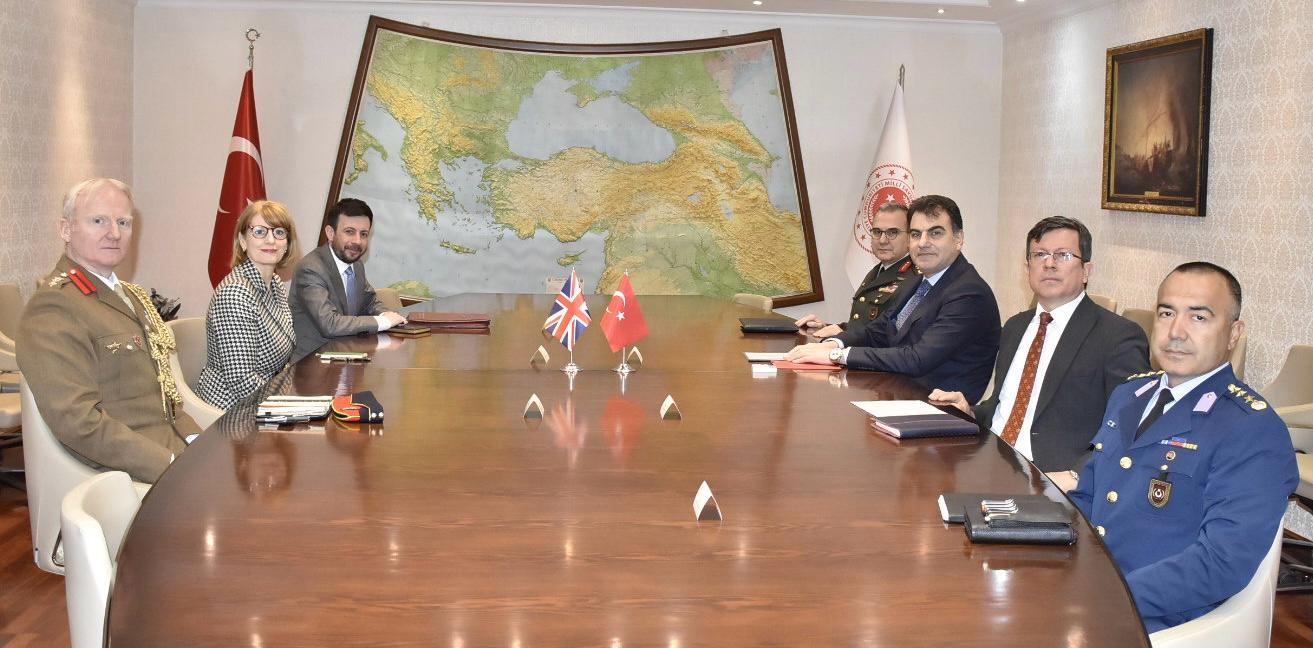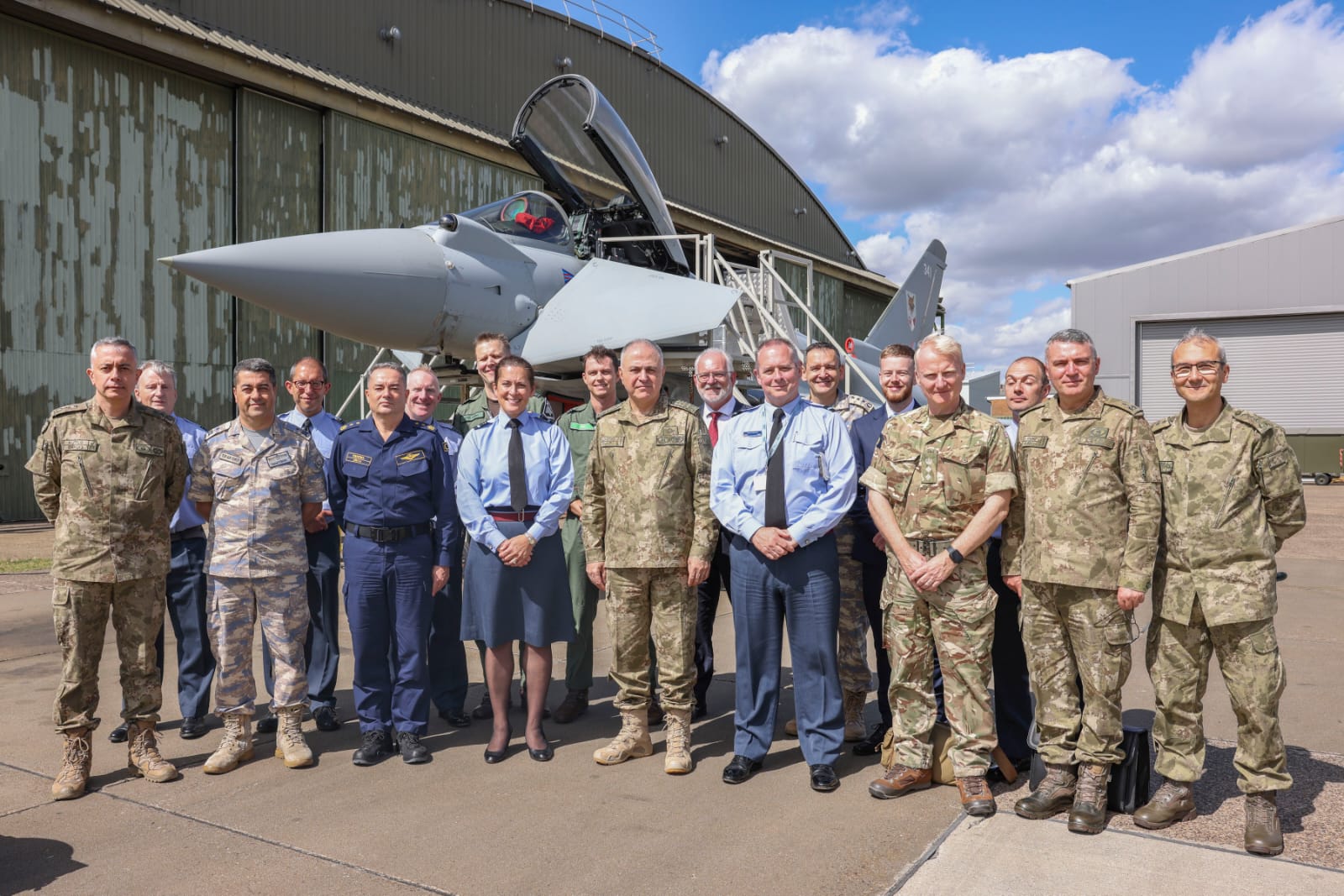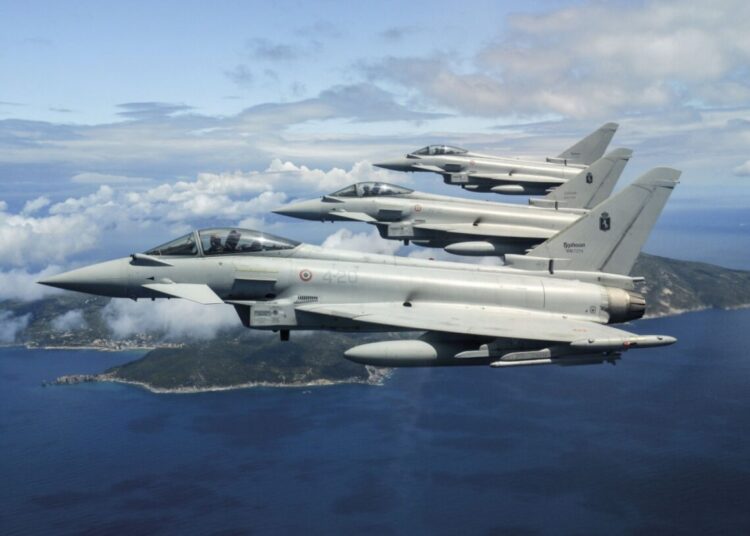Levent Kenez / Stockholm
Turkey’s Ministry of Defense on April 24 reaffirmed its commitment to pursuing the purchase of Eurofighter Typhoon jets through negotiations with the United Kingdom, distancing itself from reports that Germany had vetoed the deal in response to the recent arrest of Istanbul mayor and main opposition presidential candidate Ekrem Imamoglu.
Speaking to journalists during an April 24 press briefing, Turkish defense officials emphasized that discussions on the procurement of the Eurofighter Typhoon have exclusively involved British authorities and representatives of the manufacturing company. “We have not had any talks with Germany regarding the Eurofighter sale,” the officials stated. “From the very beginning, our counterparts have been British officials, and we have not received any official negative feedback. The process continues as planned including ongoing pricing evaluations.”
The reaffirmation came amid a growing row sparked by German media reports claiming that Berlin had halted the delivery of nearly 30 Eurofighter Typhoon jets to Turkey. The move was allegedly triggered by the imprisonment of Turkish President Recep Tayyip Erdogan’s top rival, Imamoglu, who was arrested on March 23 in a controversial case.
From his prison cell, Imamoglu addressed the German government directly in a written statement, urging Berlin to reverse its reported veto.
“From what I understand through the press, the German government has vetoed the sale of the Eurofighter jets that our air force urgently needs and has long awaited,” Imamoglu wrote. “To the incoming government in Germany, I say this: Turkey is greater than Erdogan. Governments come and go, but Turkey’s national interests outweigh both Erdogan’s and mine. I respectfully ask you to reconsider your decision.”
He continued: “The end of Erdogan’s rule is near. The new leadership in Turkey will work with all our allies including Germany and the European Union based on mutual interests, the rule of law and human rights. Under our governance, I have no doubt Turkey will become a full member of the EU.”

His appeal followed a report by the German Handelsblatt business daily which stated that the outgoing Social Democratic-Green coalition had decided to block the sale due to concerns over democratic backsliding and human rights violations in Turkey, especially following Imamoglu’s arrest.
Relations between Turkey and Germany in the defense sector have been strained in recent years, often fluctuating due to political developments in Ankara. Germany has previously blocked arms sales to Turkey over Ankara’s acquisition of Russian-made S-400 missile systems and military incursions into Syria.
A diplomatic breakthrough appeared to have been achieved in late 2024. During a visit to Istanbul on October 19, German Chancellor Olaf Scholz confirmed that Germany had granted initial approval for the Eurofighter deal, with the UK taking the lead in negotiations. This development was officially announced on November 13 by Turkish Defense Minister Yasar Güler, who stated that Germany had lifted its longstanding opposition to the agreement.
This reversal was seen as a significant step forward in restoring defense ties. In a symbolic gesture of military rapprochement, German Chief of General Staff Carsten Breuer visited Ankara on April 15, meeting with his Turkish counterpart, Gen. Metin Gürak, as well as Defense Minister Güler, and touring key defense facilities including state-owned defense contractor Aselsan and Turkish Aerospace Industries.
Despite the renewed controversy surrounding the Eurofighter sale, Turkish defense officials have consistently highlighted the constructive role played by the UK throughout the procurement process.
On March 20 British Ambassador to Turkey Jill Morris met in Ankara with Deputy Defense Minister Musa Heybet and other senior Turkish defense officials to advance discussions on the jet sale. The talks reportedly focused on technical specifications, pricing and strategic concerns. According to Turkish sources, the meeting reaffirmed mutual commitment to finalizing the deal.
Turkey is reportedly aiming to acquire 40 Eurofighter Typhoons, starting with 20 secondhand Tranche 1 aircraft from the UK, followed by 20 newly built Tranche 4 models. Deliveries are expected to begin in 2026 with full operational readiness by 2030. Turkish media reports suggest that aircraft previously sold to Gulf states could be part of the UK’s secondhand offering. Defense officials confirmed that pricing proposals and configuration options are under review.

Turkey’s interest in the Eurofighter Typhoon is part of a broader strategy to modernize its aging air force. Following its removal from the US-led F-35 Joint Strike Fighter program in 2021 due to its purchase of the Russian S-400 missile system, Ankara turned to European alternatives.
The Eurofighter Typhoon is manufactured by a multinational consortium comprising Airbus Defence and Space (Germany and Spain), BAE Systems (UK) and Leonardo (Italy). While Germany’s initial approval last year was seen as pivotal, Turkish officials stress that procurement discussions have been conducted directly with the UK and Eurofighter GmbH, the international consortium’s manufacturer.
While President Erdogan’s government has experienced tense relations with both the European Union and the United States in recent years, Turkey has maintained relatively good ties with the United Kingdom. UK Prime Minister Keir Starmer invited Turkey to a limited-attendance Ukraine summit held in the UK on March 2 along with a select group of European Union member states. The invitation drew attention as it came despite Turkey not being an EU member. Starmer’s decision to include Ankara in the summit reflects this ongoing cooperation and suggests a strategic effort by London to deepen engagement with Turkey on key international issues like the war in Ukraine.
Turkey’s planned acquisition of Eurofighter Typhoons equipped with advanced Meteor air-to-air missiles has attracted concern from Greece, which is engaged in a longstanding military rivalry with Turkey in the Aegean Sea. Greek officials are reportedly pursuing diplomatic channels to limit Ankara’s access to such high-capability weaponry.
Meanwhile, Turkey remains interested in returning to the F-35 program and is lobbying the US to remove Countering America’s Adversaries Through Sanctions Act sanctions and accelerate F-16 sales, which were were resumed after Turkey gave up its objection to Sweden joining NATO. President Erdogan raised these issues during a recent phone call on March 16 with US President Donald Trump, emphasizing shared security interests. In 2021 the US administration officially removed Turkey from the F-35 Joint Strike Fighter program due to Ankara’s purchase of the Russian S-400 missile system in 2017.












